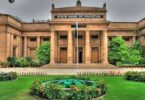While 36 months may not seem like an extended period of time, it can seem like an eternity in the volatile world of politics. Arguably, this is especially relevant in Middle Eastern economies such as Saudi Arabia, where geopolitical conflicts and economic limitations have historically caused significant volatility.
Given that a little over three years have passed since the death of Saudi monarch King Abdullah, however, it’s fair to surmise that Saudi Arabia has maintained an impressive sense of stability during this time. Much of this has to do with the King’s unique legacy, of course, which has laid the foundations for the nations recent growth and diversification.
In this article, we’ll assess the legacy of King Abdullah, and ask how this continues to impact on the financial markets.
Who Was King Abdullah, and What was his Legacy?
While King Abdullah officially ascended to the throne in 2005, he had effectively been running the Saudi kingdom since his half-brother King Fahd’s stroke a decade earlier. It was during these two decades in charge that the King imparted his ambitious and ultimately indelible legacy, as he advocated social and economic reforms that remain pertinent to this day.
Perhaps the biggest aspect of King Abdullah’s legacy was his commitment to modernising and reforming cultural attitudes in the region, as this has now translated into significant gains for female residents. While his desire to drive widespread reform was impacted by deep-seated cultural opposition throughout his tenure, he pledged bold reforms and never wavered from his stance.
In 2013, for example, he became the first Saudi monarch to appoint women to top government positions, while appointing 30 women to the 150-member Shura Council. Not only this, but his successor and half-brother Salman has worked tirelessly to honour his predecessors intentions, enabling females to vote and run as candidates in municipal elections. More recently, he ordered an official form in the royal decree that requested driving licenses to be issued to women, with a growing number now working as taxi drivers nationwide.
From an economic perspective, King Abdullah’s biggest achievement was to drive the diversification of the nation’s revenue streams, as he looked to plan for a time when Saudi Arabia could no longer rely almost exclusively on oil. In hindsight, this has proven to be a master stroke, and one that has blazed a trail for other Middle Eastern economies to follow.
As far back as 2005, King Abdullah signed Saudi Arabia up to the World Trade Organisation (WTO), integrating the country into the global economy arguably for the very first time. This also opened up the nation to foreign investment, which laying the foundations for increased spending on economic infrastructure and widespread diversification. As a result, Saudi Arabia is now profiting from lucrative industry sectors such as media, tourism and financial services, while minimising its reliance on the production and sale of oil.
This enabled Saudi Arabia to cope when an excess of global supply curbed oil prices just after King Abdullah’s death in 2015, helping to stabilise the economy and sustain the nation’s appeal across a host of financial marketplaces. More specifically,
The Last Word – King Abdullah’s Legacy and the Financial Marketplace
It’s interesting to note that when King Abdullah finally passed in January 2015 after a period of ill-health, oil prices actually rose by 2% while market volatility was kept to a minimum. This was a testament to the stability and progressive reform that the late monarch had brought to the region, as such a development would usually trigger seismic shocks throughout the financial market.
The market reaction was also muted by widespread expectation of a smooth leadership transition, and the hope that King Abdullah’s successor would continue his predecessor’s attempts to inspire social, economic and political reform. As a result, financial market trading saw no significant dips in volume, while investors were encouraged not to seek flight or identify brand new opportunities.
In the longer-term, King Abdullah’s legacy has certainly stood the initial test of time, paving the way for further reform and sustained diversification of the economy. This is helping to establish Saudi Arabia (and the Middle East as a whole) as a seminal economic force, and one that is capable of enjoying continued growth and potentially capitalising on volatility in the western world.
(Guest Post)






